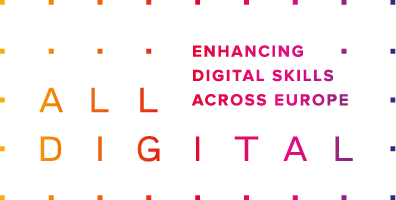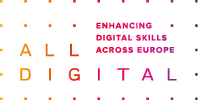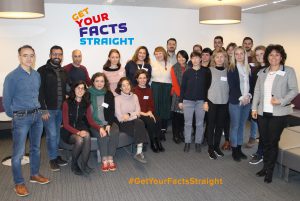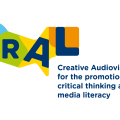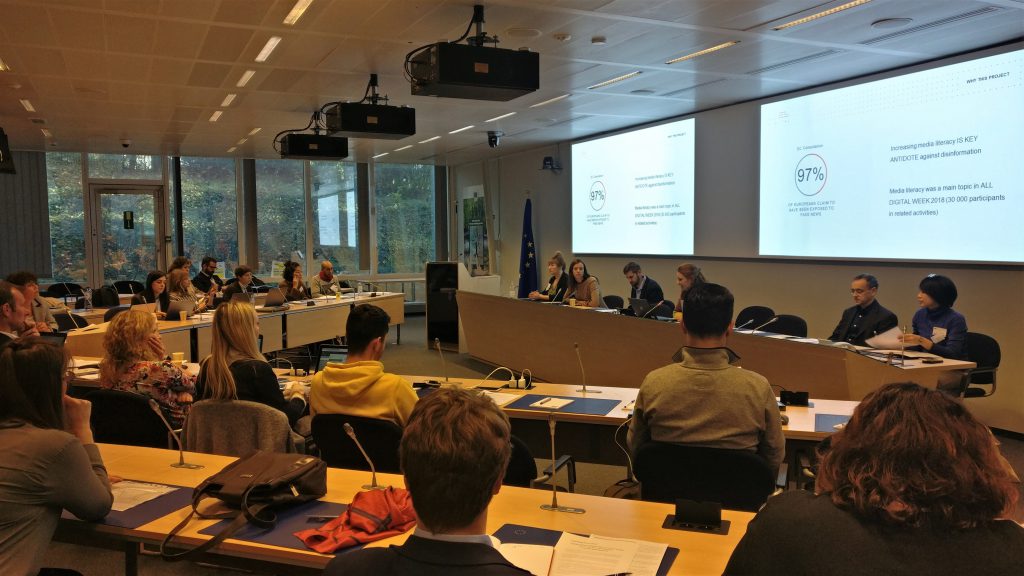
02 Dec Is it possible to understand disinformation and fake news in 10 hours?
02 Dec, 2019
Media literacy experts and trainers from all over Europe got together at a round table in Brussels on 19 November 2019 to discuss and lay the foundations of a training course on disinformation and fake news on social media platforms for youngsters and their parents.
The EU-funded project (DG CNECT, “Media literacy for all” call) Get Your Facts Straight brought together 37 experts and practitioners from eight countries to discuss how to raise awareness about disinformation and fake news on social media and teach which steps are necessary to respond responsibly. They were invited to share their views on the Get Your Facts Straight training course outline.
The project
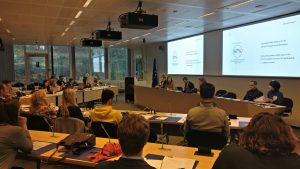
The European policy context
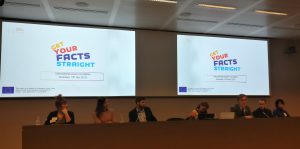
Lara Orlandi from the Audiovisual and Media Services Policy Unit I1 at DG CNECT welcomed everybody and pointed out to the Audiovisual Media Services Directive (AVMSD), which says that EU member states have to promote media literacy, and thus, gives the EC a tool to follow up and put pressure on member states to foster media literacy at national level. Moreover, last year the EC launched the Media Literacy week, which will be repeated annually and in 2020 will take place during the last week of March 2020 (30 March – 4 April) under the Croatian presidency. A conference on media literacy will take place in Zagreb to take the focus away from Brussels. Lara also mentioned that in the new MFF (Multiannual Financial Framework) a big chunk of money will be devoted to 1) media literacy and 2) media freedom, which means that a more sustainable funding for media literacy initiatives is expected. Good news!
Kalman Dezseri from the Media Convergence and Social Media Unit I.4 that manages the “Media Literacy for All” call gave some figures about the call. Last year the call received 10 proposals, while this year the number has almost doubled to 17, out of which four were selected for funding. 2020 will see the last Preparatory Action “Media Literacy for All” (starting from 2016, there have been two Pilot Project calls, followed by three Preparatory Action calls, which is the maximum allowed). From 2021 on, the budget for the “Media Literacy for All” call will be provided by the Creative Europe programme, and the financial conditions will hopefully improve. The focus on disinformation and fake news will probably be continued in the Creative Europe programme through a dedicated strand. He also pointed out that applications are less frequent from Central European member states and therefore encouraged a stronger effort from them. In the new financial period, the emphasis on cross-border activities will be strengthened.
Examples of resources
Before getting down to the discussions, and to inspire participating experts and trainers, two project partners presented some examples of Resources on disinformation and fake news they collected.
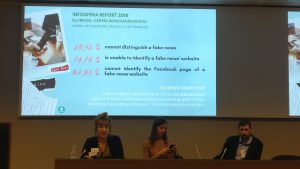
Janice Diamantino from Open Group also shared three very relevant resources: Silence Hate Practical Handbook to challenge hate speech; The Bad News Game (again!) and a resource from the Italian Ministry of Education – Decalogo #BastaBufale. The presentation is available here
Getting down to work
After the presentation of the resources, Paolo Celot and Fulin Low from EAVI presented the draft outline of the Get Your Facts Straight training course and methodology, including the expected learning outcomes of the training, the skills that participants will acquire and the teaching methods. The presentation is available here
The three main learning outcomes are:
- Understand what disinformation is;
- Understand how social media make money and why disinformation and propaganda are vastly present on social media;
- Understand how to recognise and react to disinformation.
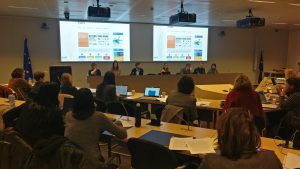
Finally, he presented the four questions, to which experts and partners should aim to answer during the discussions:
1. Should we define different learning outcomes for the two different target groups (youth 14-16 and their parents/grandparents)?
2. Keeping in mind the time constraints (15h in total = 5 for young people, 5 for parents and 5 together) should we aim at a higher level than level 2 (Understanding) of the Bloom taxonomy?
3. What are the potential advantages and challenges of having youths and their parents/grandparents undergoing training together?
4. How will the dynamics between the youths and their parents/grandparents affect the training?
Experts divided into 4 working groups and discussed the four questions in detail and shared invaluable insights, which the Get Your Facts Straight partners will take forward and implement in the design of the training course.
Outcomes of the discussions
There was an agreement regarding the first two questions: 1) there is no need to define different learning outcomes for youngsters and parents, but of course, we need to use adapted content and tools with each group and 2) it is already an achievement to reach Level 2 of the Bloom’s taxonomy, so even if we aim at a higher level, we should already be proud if we manage to help people understand what is fake news and that such phenomenon exists.
A number of advantages and challenges of having youngsters and their parents together were identified. Among the advantages experts mentioned that parents and youngsters will understand that they are confronted with the same problems. Spending time together was mentioned as another advantage, as well as parents becoming more aware of what their children are doing. Among the challenges were: difficulty for trainers to conciliate the different opinions and perspectives; parents believing that their child is the best and pushing them to “succeed” in the training; the possibility of parents’ reputation being questioned (parents are afraid that their children might realise that they don’t have all the answers). Up to the trainers and the course designers to tackle these challenges.
Next steps
The round table was followed by a partners’ meeting on the next day, where partners took account of all the input collected and discussed in detail the way forward. The training outline and methodology will be finalised by the end of February and will be ready to be used by anyone during the ALL DIGITAL Week and Media Literacy Week. So, if you want to organise innovative training activities on disinformation and fake news, stay tuned!
